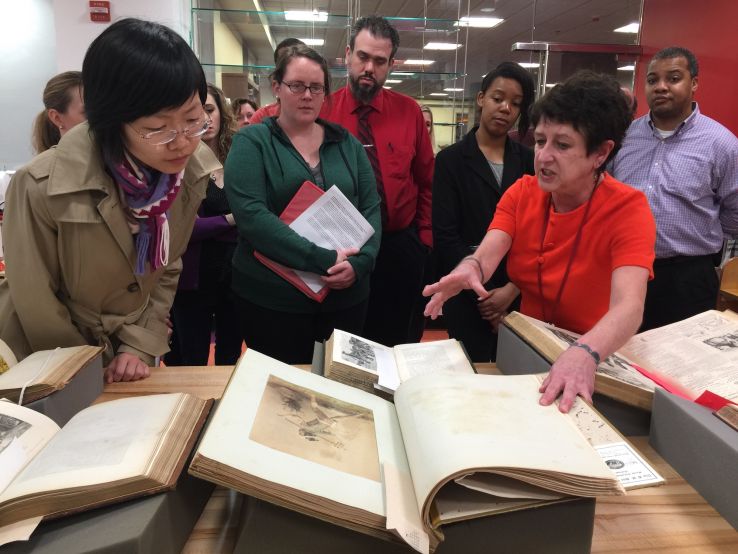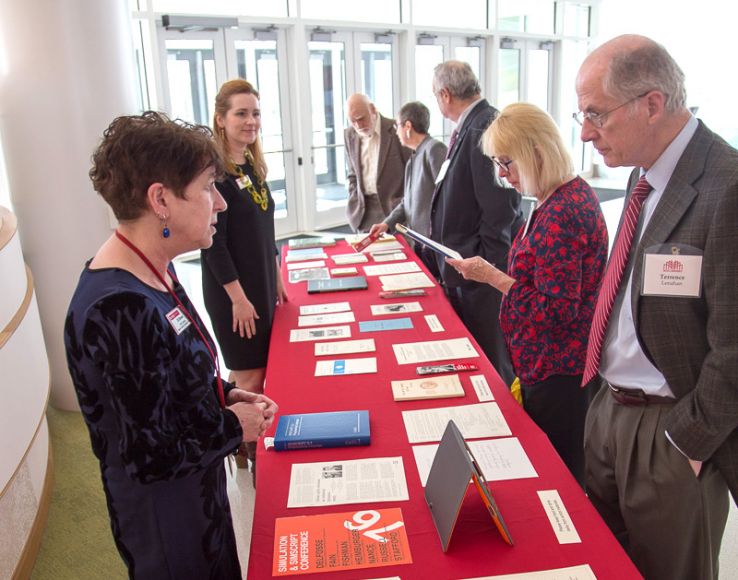Remembering Eli Brown

In memory of our colleague, Eli Brown, who passed away last summer, the Libraries will provide up to $3,000 per year for an NC State University Libraries staff member to participate in an international conference or professional event, including support for registration and allowable travel expenses.
Eli, who served as the Department Head of our Special Collections Research Center (SCRC) between 2011 and 2020, came to us from Cornell University, where she served as Assistant Director for Programs and Services in the Division of Rare and Manuscript Collections, as well as Curator of Digital and Media Collections, among numerous other roles. Previously, she held a series of positions at the National Archives of Canada including Photo Archivist, Project Officer, and Project Coordinator for the Canadian Memory Digital Access Projects. There, she received the Government of Canada Individual Merit Award (1999).
Eli held a Master of Arts from the University of Edinburgh in Scotland, her home country. She traveled back to Scotland often to visit family, with whom she was very close, making the international aspect of this award in her honor all the more meaningful.
While with the NC State University Libraries, Eli led the growth of our core collections, overseeing significant additions to Architecture & Design and Landscape Architecture; Animal Rights & Welfare; Engineering; Zoological Health & Veterinary Medicine; North Carolina State University History; Computer Simulation; Agricultural Innovation; and Forestry & Environmental Resources.

But perhaps even more important than growing these core collections is how the SCRC team, under Eli’s leadership, increased representation in, and access to, these materials. Whether through creating timelines and histories of underrepresented groups on campus, recording oral histories of scholars and marginalized community members, providing fellowships for visiting scholars, hosting hands-on class visits, or receiving grants for robust digitization, this work extended the collections’ content and availability to a much larger and more diverse set of users.
“Eli was incredibly passionate about access to special collections and the power of special collections in the hands of students, what they can do for their scholarship and curiosity in general,” recalls Greg Raschke, Senior Vice Provost and Director of Libraries. “She was also passionate about equity and diversity in special collections and had a vision for special collections as a driver of equity, as a way of telling the stories of communities that haven’t always had an equal platform for their stories.” Raschke points out that this work extended back to her days at Cornell, where she helped develop an incredible LGBTQ+ and human sexuality collection, and ran through her time at NC State.

In developing these platforms, processes, services, and expertise, the SCRC, under Eli’s guidance, has earned a reputation as a leader in the field. As a result, it has raised its profile both locally and nationally, winning several recent awards and being featured on C-SPAN for its entomology materials. A recent television feature on WTVD told the story of how a local church, whose building was designed by an important local modern architect, found its historical blueprints and construction photographs and entrusted them to the SCRC.
Eli’s legacy at NC State, Raschke adds, will be “her work to diversify our collections, as well as her work to collect the papers of women professors as well as professors of color.” It is this work, in part, on which the trust between campus and the SCRC, as well as the community and the SCRC, is built—work that Eli’s colleagues will no doubt continue to foster for years to come.
